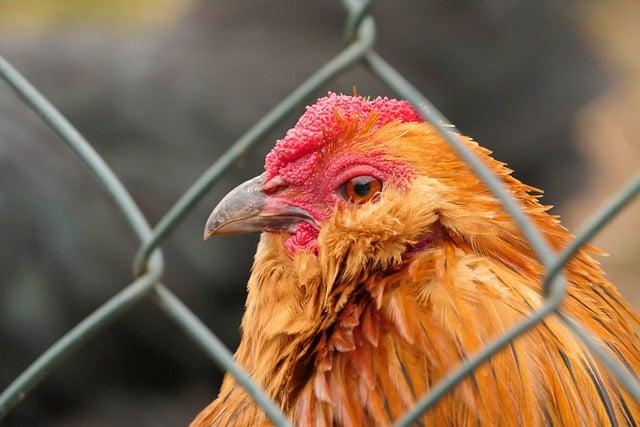Max, a spirited golden retriever, watched eagerly as his owner cracked open a dozen eggs for breakfast. Curious, he tilted his head, wondering if he could join in on the feast. His owner, concerned about Max’s diet, hesitated. But did you know that cooked eggs can be a nutritious treat for dogs? Packed with protein and essential fatty acids, they can boost your pup’s coat and energy levels. So, the next time you whip up a scramble, consider sharing a little with your furry friend. After all, a happy dog is a healthy dog!
Contents
- Understanding the Nutritional Benefits of Cooked Eggs for Dogs
- Identifying Potential Risks and Allergies Associated with Egg Consumption
- Guidelines for Safely Incorporating Cooked Eggs into Your Dogs Diet
- Expert Recommendations on Serving Sizes and Preparation Methods for Dogs
- Q&A
Understanding the Nutritional Benefits of Cooked Eggs for Dogs
When considering the dietary needs of your canine companion, cooked eggs emerge as a powerhouse of nutrition. These versatile foods are rich in high-quality protein, which is essential for maintaining muscle mass and overall health in dogs. The amino acids found in eggs are vital for various bodily functions, including tissue repair and immune support. By incorporating cooked eggs into your dog’s diet, you can help ensure they receive the necessary building blocks for a strong and healthy body.
In addition to protein, cooked eggs are an excellent source of essential fatty acids. These healthy fats contribute to a shiny coat and healthy skin, making your dog look and feel their best. Furthermore, the presence of vitamins such as A, D, and B12 in eggs plays a crucial role in maintaining your dog’s vision, bone health, and energy levels. By offering cooked eggs, you provide a nutrient-dense treat that can enhance your dog’s overall well-being.
Another significant benefit of cooked eggs is their contribution to digestive health. Eggs contain a variety of minerals, including selenium and iron, which support various metabolic processes. The easily digestible nature of cooked eggs makes them an ideal option for dogs with sensitive stomachs or those recovering from illness. By introducing this wholesome food into their diet, you can promote better digestion and nutrient absorption, ensuring your dog gets the most out of their meals.
Lastly, cooked eggs can serve as a delightful and engaging treat for your furry friend. Dogs often enjoy the taste and texture of eggs, making them an excellent addition to their regular diet or as an occasional reward. When prepared properly—boiled, scrambled, or poached without added fats or seasonings—cooked eggs can be a safe and nutritious option. By choosing to include cooked eggs in your dog’s diet, you are not only providing them with essential nutrients but also enhancing their mealtime experience.
Identifying Potential Risks and Allergies Associated with Egg Consumption
When considering adding cooked eggs to your dog’s diet, it’s essential to be aware of potential risks and allergies that may arise. While eggs are a nutritious source of protein and other beneficial nutrients, some dogs may have sensitivities or allergies that could lead to adverse reactions. Understanding these risks can help you make informed decisions about your pet’s diet.
One of the primary concerns is the possibility of an **egg allergy**. Symptoms of an allergy can manifest in various ways, including:
- Itchy skin or rashes
- Gastrointestinal upset, such as vomiting or diarrhea
- Ear infections or inflammation
- Excessive licking or chewing of paws
If you notice any of these signs after introducing eggs to your dog’s diet, it may be wise to consult your veterinarian for further evaluation.
Another risk to consider is the potential for **salmonella contamination**. While the chances are relatively low, raw eggs can harbor harmful bacteria that may lead to serious health issues in dogs. Cooking eggs thoroughly can significantly reduce this risk, but it’s crucial to ensure that they are prepared in a safe manner. Always avoid adding any seasoning or ingredients that could be harmful to your pet.
Lastly, it’s important to monitor your dog’s overall health and dietary balance. While eggs can be a great addition to their meals, they should not replace a complete and balanced diet. Overconsumption of eggs can lead to **nutritional imbalances** or excessive calorie intake, which may contribute to obesity or other health problems. Always introduce new foods gradually and in moderation, ensuring that your furry friend remains healthy and happy.
Guidelines for Safely Incorporating Cooked Eggs into Your Dogs Diet
When considering adding cooked eggs to your dog’s diet, it’s essential to follow certain guidelines to ensure their safety and health. First and foremost, always use fresh, high-quality eggs. **Organic or free-range eggs** are preferable, as they are less likely to contain harmful additives or chemicals. Additionally, make sure to thoroughly cook the eggs to eliminate any risk of salmonella or other bacteria that could harm your furry friend.
Portion control is crucial when introducing new foods to your dog’s diet. Start by offering a small amount of cooked egg, such as a quarter of a scrambled egg, and observe how your dog reacts. If there are no adverse effects, you can gradually increase the portion size. **Moderation is key**; too many eggs can lead to an imbalance in your dog’s diet, potentially causing weight gain or digestive issues.
It’s also important to avoid adding any seasonings or ingredients that could be harmful to dogs. **Salt, garlic, and onion** are common seasonings that should be strictly avoided, as they can be toxic to pets. Instead, serve the eggs plain or mix them with other dog-friendly ingredients like plain cooked vegetables or a small amount of dog food to enhance flavor without compromising safety.
Lastly, always consult your veterinarian before making significant changes to your dog’s diet. They can provide personalized advice based on your dog’s specific health needs and dietary requirements. By following these guidelines, you can safely incorporate cooked eggs into your dog’s meals, providing them with a nutritious and tasty treat that they will love.
Expert Recommendations on Serving Sizes and Preparation Methods for Dogs
When considering adding cooked eggs to your dog’s diet, it’s essential to focus on appropriate serving sizes. Generally, a small dog can safely consume half an egg, while medium to large breeds can enjoy a whole egg. However, it’s crucial to monitor your dog’s overall diet to ensure that the addition of eggs does not exceed their daily caloric needs. Always consult with your veterinarian to tailor the serving size to your dog’s specific health requirements and activity level.
Preparation methods play a significant role in how beneficial cooked eggs can be for your furry friend. **Boiling** or **scrambling** eggs without any added oils, butter, or seasonings is the healthiest approach. These methods preserve the nutritional value of the eggs while keeping them easy to digest. Avoid frying eggs, as the added fats can lead to unnecessary weight gain and digestive issues in dogs.
Incorporating cooked eggs into your dog’s meals can be a delightful treat, but it’s essential to introduce them gradually. Start by mixing a small amount of scrambled or boiled egg into their regular food. This not only helps your dog adjust to the new flavor but also allows you to monitor for any adverse reactions. If your dog shows signs of allergies or digestive upset, discontinue serving eggs and consult your veterinarian.
Lastly, remember that variety is key to a balanced diet. While cooked eggs are a great source of protein and essential nutrients, they should complement a well-rounded diet that includes high-quality dog food and other protein sources. By following these expert recommendations, you can ensure that your dog enjoys the benefits of cooked eggs safely and healthily.
Q&A
-
Can dogs eat cooked eggs?
Yes, dogs can safely eat cooked eggs. Cooked eggs are a great source of protein and essential nutrients that can benefit your dog’s health.
-
What are the benefits of feeding cooked eggs to dogs?
Feeding cooked eggs to your dog can provide numerous benefits, including:
- High-quality protein for muscle development
- Rich in vitamins such as A, B12, and riboflavin
- Contains healthy fats that support skin and coat health
- May improve digestion due to the presence of amino acids
-
How should I prepare eggs for my dog?
To ensure your dog’s safety, always serve eggs cooked. You can scramble, boil, or poach them without adding any seasoning, oil, or butter. Avoid raw eggs, as they can pose a risk of salmonella.
-
How often can I feed my dog cooked eggs?
Cooked eggs can be a healthy treat for your dog, but moderation is key. Depending on your dog’s size and dietary needs, one egg a few times a week is generally safe. Always consult your veterinarian for personalized advice.
cooked eggs can be a nutritious addition to your dog’s diet, offering essential proteins and nutrients. Always consult your veterinarian before introducing new foods, ensuring your furry friend enjoys a safe and balanced meal.

大家好,我是彼得潘,專業的手法身體治療師。我喜歡探索和研究各種主題,並透過與人工智慧的合作分享專業、實用、有趣的文章。我們定期進行人工審核,以確保內容的準確性。如果您發現文章中有任何不準確的地方,請隨時與我們聯繫,我們會及時糾正。您可以透過 [email protected] 與我們聯繫。



